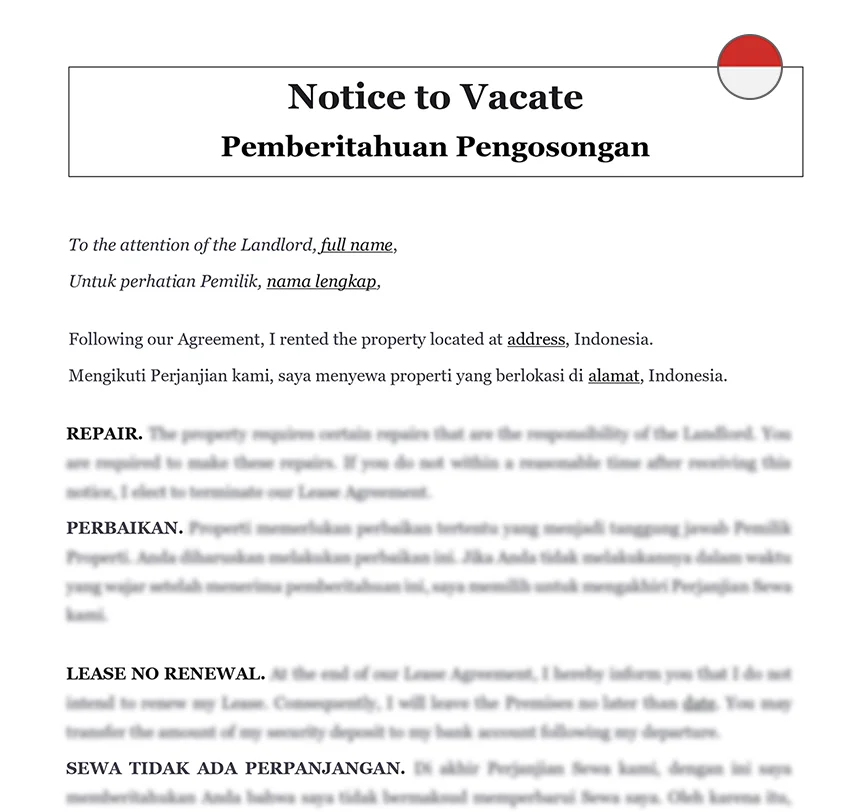Ready to use legal template
Drafted by experienced lawyers
Indonesian-English translation
Ready to use legal template
Drafted by lawyers
Indonesian-English translation
Home › Rent your property › Notice to vacate
Learn more about Notice to Vacate in Indonesia
In Indonesia, the “notice to vacate” is a formal communication from a tenant to their landlord, indicating the tenant’s intention to terminate the lease agreement due to a breach by the landlord or to seek renewal. Tenants have the freedom to terminate their lease at any point, but it’s crucial to adhere to the notice period and provide a valid reason for contract termination if they aim to retrieve their security deposit. Themis Partner offers a comprehensive template for addressing tenant breaches in cases of landlord default. Additionally, our legal team is available to craft letters tailored to your specific circumstances, granting you the legal means to recover your deposit. With our support, you can preempt any potential legal actions initiated by your landlord.
Table of contents
-
What is a Notice to Vacate in Indonesia?
-
What is included in a Notice to Vacate letter?
-
When should a Notice to Vacate be sent?
-
What are the different types of Notice to Vacate?
-
How should I deliver the notice to vacate to my landlord?
-
What is the required notice period for terminating my lease agreement in Indonesia ?
-
How to avoid tenancy disputes?
What is a Notice to Vacate?
A notice to vacate is a formal declaration sent to a landlord by a tenant informing them that they will be leaving their residence before the lease expires. A notice of intent to vacate is another name for a notice to vacate.
The letter of notice to vacate is delivered to provide your landlord adequate time to find a new tenant for the flat you’re leaving. The letter is typically distributed one to three months before your lease expires.
A notice to vacate can be given for any lease period, from month-to-month to regular one-year leases.
What is included in a Notice to Vacate Letter?
The Notice to Vacate typically includes the following provisions:
| ➤ Notification of termination decision |
| ➤ Termination date |
| ➤ The clause that forms the basis for termination |
| ➤ Take note of any efforts to replace the renter, if agreed upon |
| ➤ Acceptance or rejection of any financial penalty specified in the contract |
| ➤ Termination of tenancy terms and circumstances |
| ➤ Penalties, such as a failure to pay a security deposit, may be imposed |




